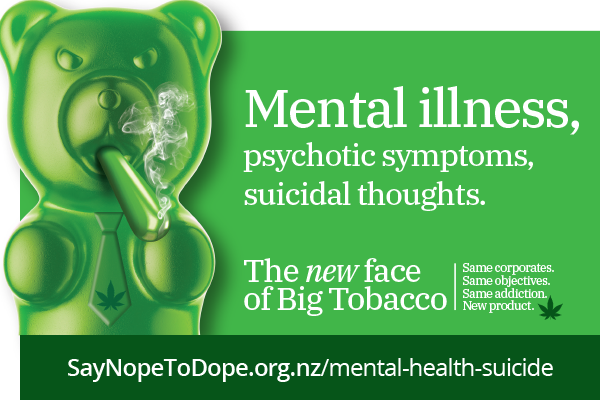
BreakPoint 29 June 2020
Our additional comment: The title of the study telegraphs the punchline: “Legalized Cannabis in Colorado Emergency Departments: A Cautionary Review of Negative Health and Safety Effects.” Cannabis legalization has led to significant health consequences, particularly to patients in emergency departments and hospitals in Colorado.” The consequences that are, in their words, “most concerning” are “psychosis, suicide, and other substance abuse,” not to mention the impairment of a user’s “complex decision making,” which may be irreversible, even by subsequent abstinence. In Colorado, cannabis-related emergency and urgent-care visits among “teenagers and young adults” increased nearly three-fold after legalization. Most of these visits required “behavioural health evaluation.
Recreational marijuana is legal in 11 states and another 21 states permit the use of so-called “medical marijuana.” I say “so-called” because, as NYU drug policy expert Mark Kleinman has put it, “the vast majority of ‘patients’ buying ‘medical marijuana’ aren’t doing so under any sort of active medical supervision . . . Many of them aren’t ‘treating’ anything but their desire to get high . . .”
In the push to legalize, America has been sold dangerous lies about marijuana – of financial windfalls with no accompanying social cost and of therapeutic benefits with no accompanying dangers. But marijuana is dangerous. In fact, for some, it’s potentially lethal.
Dr. Erik Messamore, a psychiatrist with a doctorate in psychopharmacology, recently brought attention to a study published by a branch of NIH about my state, which is ground zero of the marijuana push in the United States. The title of the study telegraphs the punchline: “Legalized Cannabis in Colorado Emergency Departments: A Cautionary Review of Negative Health and Safety Effects.”
This “cautionary review” begins rather bluntly: “Cannabis legalization has led to significant health consequences, particularly to patients in emergency departments and hospitals in Colorado.” The consequences that are, in their words, “most concerning” are “psychosis, suicide, and other substance abuse,” not to mention the impairment of a user’s “complex decision making,” which may be irreversible, even by subsequent abstinence.
In Colorado, cannabis-related emergency and urgent-care visits among “teenagers and young adults” increased nearly three-fold after legalization. Most of these visits required “behavioral health evaluation.”
To quote the G.I. Joe public service announcements of my youth, “Now you know, and knowing is half the battle.” Except, and this should disturb us all, the link between cannabis use and mental illness was already well-known before legalization.
In his book, No One Cares About Crazy People, Ron Powers (who co-wrote the World War II history Flags of Our Fathers) told the story of his two sons, both diagnosed with schizophrenia in their early twenties. Marijuana use, Powers learned, contributed to their diagnosis. Specifically, marijuana use increases the chances of schizophrenia for people who carry the genes AKT1 and COMT, which “affect brain chemistry.” Powers’ sons had these genes. One of them committed suicide, and the other attempted suicide but was saved through a timely intervention.
READ MORE: https://breakpoint.org/the-link-between-marijuana-psychosis-and-suicide/?_hsmi=90329413&_hsenc=p2ANqtz-80qR6EnlQmf4TW9WuSC-IKA3141cMWo9IXgarDX0ZkINIdQ0gKPneMstKAXvN961lmDB_FCiRi-uB1xOdo7OpcKDHi_A

